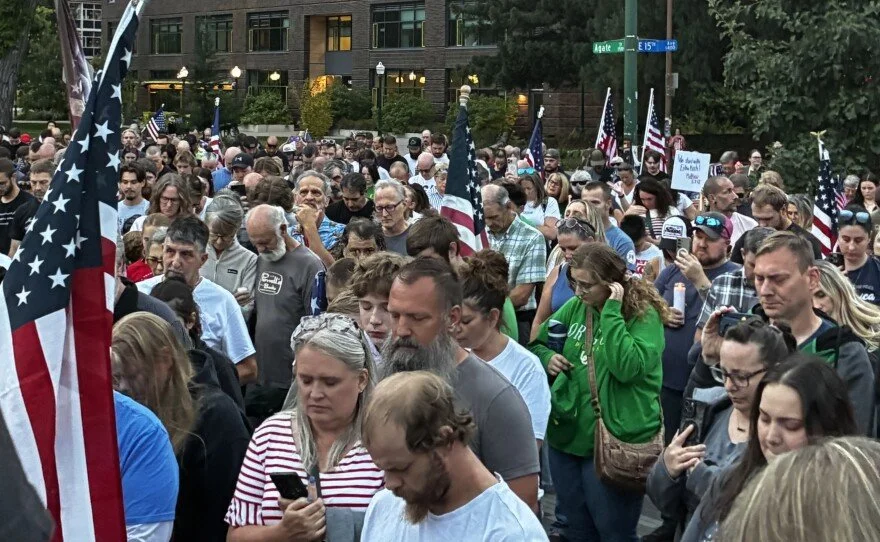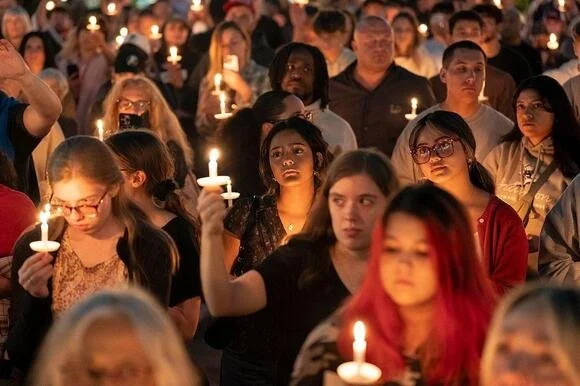The True Dividing Line
I have to confess I did not know Charlie Kirk. I got his emails, but I didn’t read them.
A friend of mine was a big supporter of Charlie’s back in 2013. Although in general I found Charlie’s views and mine aligned, I found his way of engaging others more confrontational than to my comfort, and so I chose not to follow him … until last week.
What struck me, as I read more about his life, was what I perceived as a shift in how he treated those with whom he disagreed. Had he gone from disliking or even vilifying those he disagreed with to actually loving them? I can’t prove this point, but it seems to me the most important message he was delivering was not that he was correct, but that he wanted to show a respect for the person even if he strongly disagreed with their perspective.
I am sure there were people he engaged who did not feel this acceptance. It is difficult to feel fully heard by someone on a deeply held belief if not fully affirmed in it, or if, in the past, your interlocutor made provocative comments about your beliefs. However, it is unrealistic for us to navigate this life with the expectation that if people don’t agree with me, I am being rejected for who I am. The goal for each of us is to communicate acceptance, respect, and love, despite our deep disagreements. As a Christian, this is the most radical teaching of Christ to His followers: Love your enemy.
You have heard that it was said, ‘Love your neighbor and hate your enemy.’ But I tell you, love your enemies and pray for those who persecute you, that you may be children of your Father in heaven. Matthew 5:43-45
Candlelight Vigil for Charlie Kirk
And perhaps this is the journey I sensed Charlie was on. It seemed to me that his primary lens in 2012 when he started Turning Point USA was ideological. He set it up to promote conservative ideas. However, recently, a new lens seemed to have been increasingly dominant, and that was his faith.
I don’t doubt his faith was real in 2012, but in Christian doctrine, there is a term called “sanctification.” In short, this is the journey that a Christian is on to become more “Christlike” in one's thinking, behaving, and speaking. This journey is aided in many ways, including by prayer, discipleship, hardship, and life changes, such as marriage and children.
For many of those who did read his emails or attend his rallies, this is a time of hardship. It is a part of their journey, and possibly sanctification. Will their response be anger, hatred, and revenge … or love?
As you may know, the Clapham Group’s sister production company More Productions produced a short animated film about the 21 Coptic Martyrs that were beheaded by ISIS in 2015. Their last words were that God forgive their executioners. When we met with the widows of the martyrs to show the film before releasing it, one woman was asked what she would say to one of the ISIS members if she could confront them. She shocked us by saying “thank you” for making her husband a martyr and sharing their faith with the world.
This is a radical faith that we can’t all be expected to express in the moment, and it will take grace and the sanctification process to get us there. But this is exactly the sentiment that Jesus expressed on the cross:
Father, forgive them, for they do not know what they are doing. Luke 23:34
Too many of the commentators on the left and right have blamed the murder on the toxic, hate-filled rhetoric of “the other side” rather than one sick individual and the extreme radicals calling for violence that influenced him. Painting with a broad brush in these moments is not helpful. In fact, we should all look in the mirror and ask whether there are ways we each have contributed to the coarsening and polarization of our society. As Aleksandr Solzhenitsyn reminds us:
If only there were evil people somewhere insidiously committing evil deeds, and it were necessary only to separate them from the rest of us and destroy them. But the line dividing good and evil cuts through the heart of every human being. And who is willing to destroy a piece of his own heart?
In Peggy Noonan’s prescient piece on a recently released compilation of essays by David McCullough a week before the shooting, she said: “I write for those 33-year-old operatives you speak of who have actually never seen grace. If they don’t know what it looks like they can’t emulate it, they can’t adopt it and give it new life because they don’t know what it was.”
Perhaps the greatest loss in Charlie's death is that although his sanctification journey began to become visible, we weren’t allowed to see it progress as his family and followers matured along with him. But in reality, we are never fully matured on this side of eternity. We did see a man whose faith was becoming his primary lens, and in becoming more Christlike was willing to risk the most radical of Jesus’ teachings: to start to love his enemies.
May we do the same and, we pray, the 33-year-olds who did read his emails.


